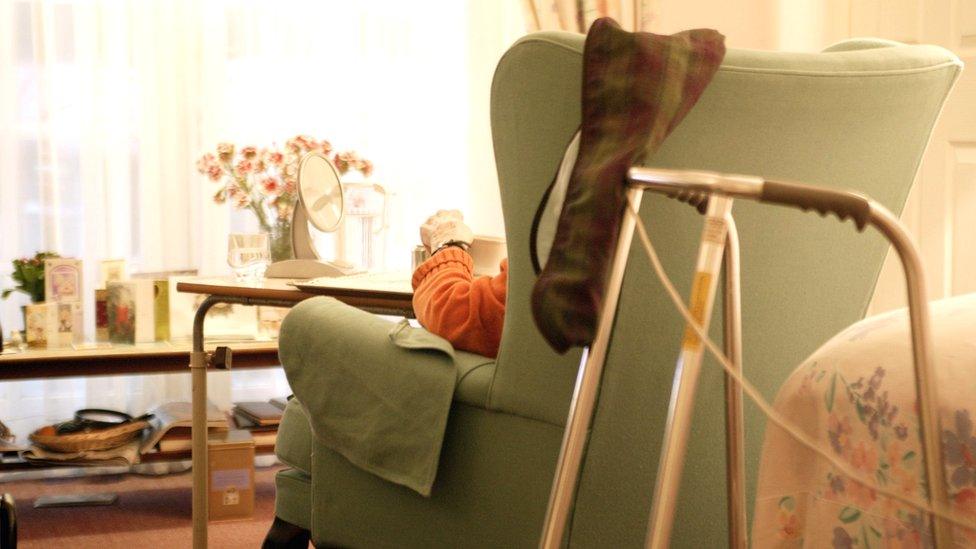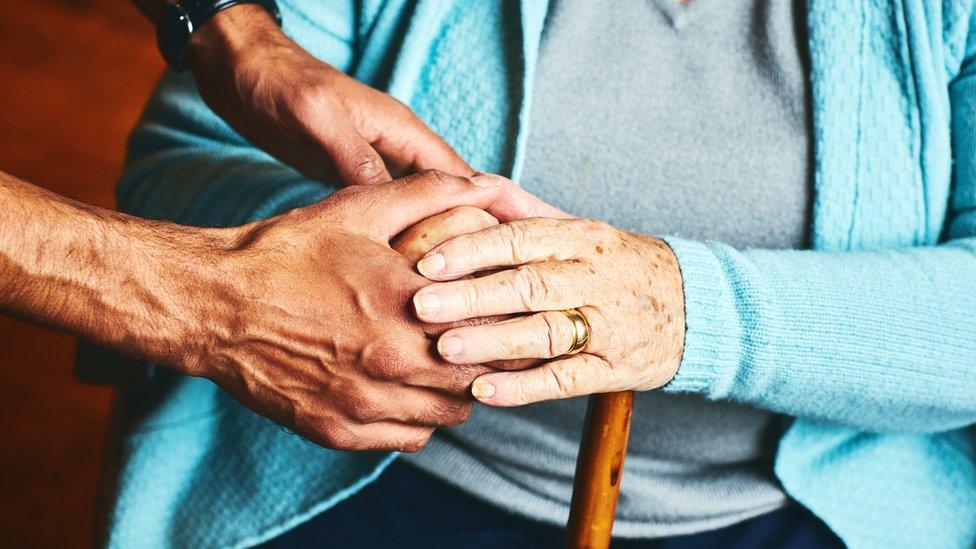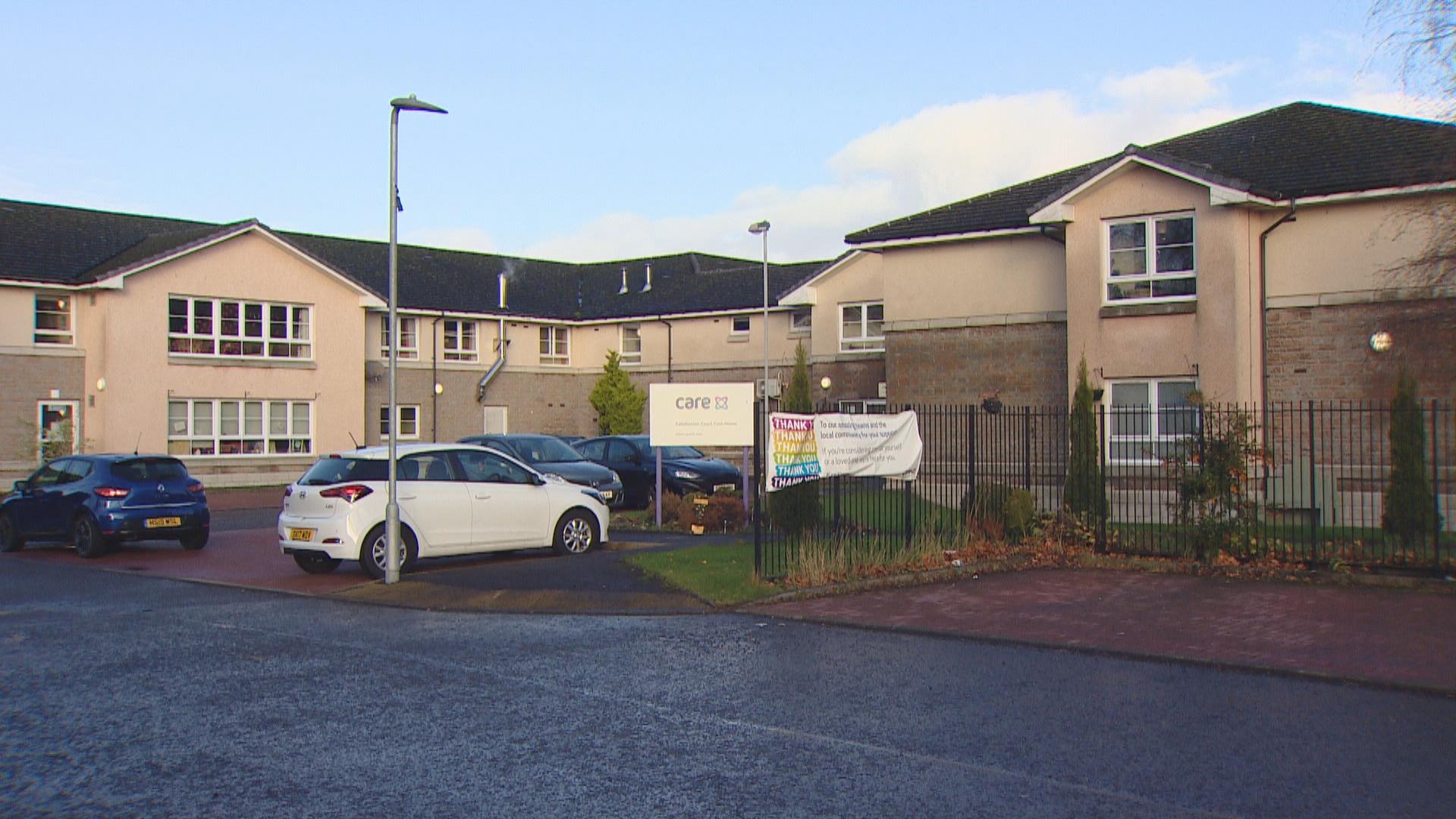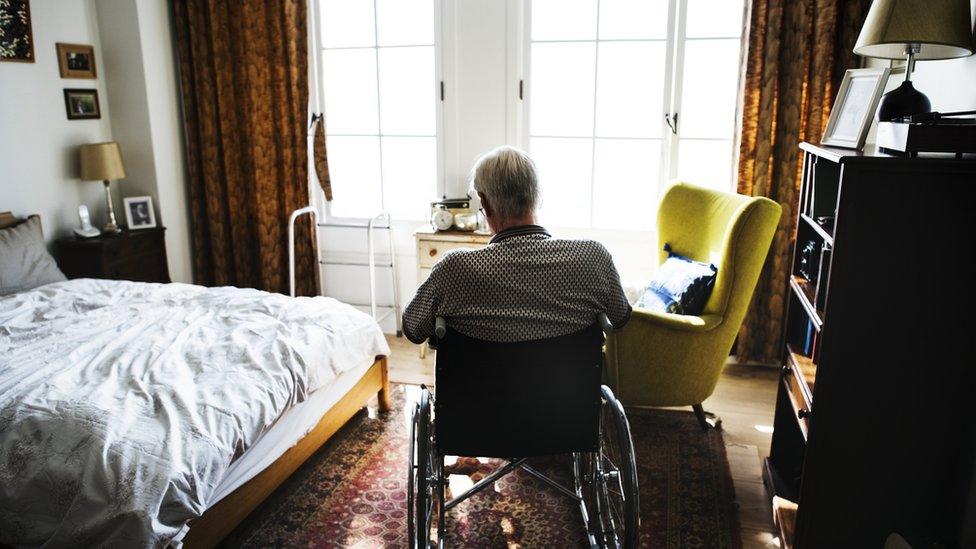Covid patients still being sent to care homes without negative tests
- Published

Opposition parties are demanding a complete ban on discharging patients to care homes without two negative tests.
The two test policy was introduced in April, but the health secretary has confirmed such discharges are still allowed.
Jeane Freeman said it was "right and proper" that clinicians had the final say in exceptional cases.
The Scottish Conservatives, Labour and the Lib Dems have called for the practice to be stopped.
Large numbers of elderly patients were moved out of hospital in the early weeks of the pandemic amid fears the NHS could soon become overwhelmed.
However, an analysis by Public Health Scotland published last month found no "statistically significant evidence" that it caused the high rate of infection and deaths in care homes.
The policy of hospital Covid patients having two negative tests prior to discharge to a care home was introduced on 21 April.
The Scottish government said if they had been in hospital for any other reason, they should have one negative test before discharge.
People who are admitted to care homes from the community should also have one negative test - but all new care home residents should complete 14 days of isolation, whatever the result of the test.
A person would be moved without having a test in only "exceptional" circumstances, the government said in a statement.
"This might happen if the person has severe difficulty doing the test - for example if someone with dementia finds it highly distressing, or cannot give consent," it added.

In a response to a parliamentary question from Labour's Monica Lennon, reported in the Sunday Mail, external, Ms Freeman confirmed patients could still be discharged to care homes without a second negative test if it was in their "clinical interests".
"This clinically led decision is for exceptional circumstances and after a full risk assessment, consulting the resident, family and care home on what is right for the individual and putting appropriate mitigating actions and support in place," she said.
Pressed on the issue on the BBC's Sunday Politics, Ms Freeman said: "It is entirely right and proper, I think, that clinicians who are experienced in elderly care and medical care and social work staff experienced in social work support for older people are the ones who will make the final decision."
Opposition MSPs are calling for the practice to be stopped immediately.
Monica Lennon, Scottish Labour's health spokeswoman, said: "People known to have Covid-19 should not be placed in care homes and Jeane Freeman must put a stop to this dangerous practice immediately before more lives are lost.
"Thousands of older and disabled people living in care homes have been forbidden from even talking to their loved one through the window, yet the Scottish government is allowing residents to bring the virus through the back door.
"Too many lives have already been sacrificed. This must end today."
'Reckless message'
Opposition parties have called for a more detailed inquiry into hospital discharges to care homes.
Scottish Conservative health spokesman, Donald Cameron said: "The SNP have clearly not learned the harsh lessons of the first wave of the pandemic, when we saw Covid-19 ripping through care homes if given even the slightest chance.
"This isn't about challenging clinical decisions, it's about the reckless message being sent from the health secretary that it could be 'entirely right and proper' to discharge patients without a test."
Scottish Lib Dem spokesman Alex Cole-Hamilton MSP said: "What is happening is the opposite of what we were told by the government.
"There is now categoric proof that the double test protection policy is not being followed.
"The buck has to stop with ministers who have been all over the place on this.
"Care home residents and their families deserve to be treated better."
Linda Bauld, professor of Public Health at Edinburgh University, said that testing on discharge from hospital was a really important component of protecting care homes and something "we didn't get right" in the first wave of the pandemic.
She said: "I know it is down to clinical judgement but ideally all these patients should be tested and they should be tested twice."
Asked if there would be cases where that was not appropriate, she said: "There would really need to be exceptional circumstances for that to be justified."
Related topics
- Published21 November 2020

- Published28 October 2020
